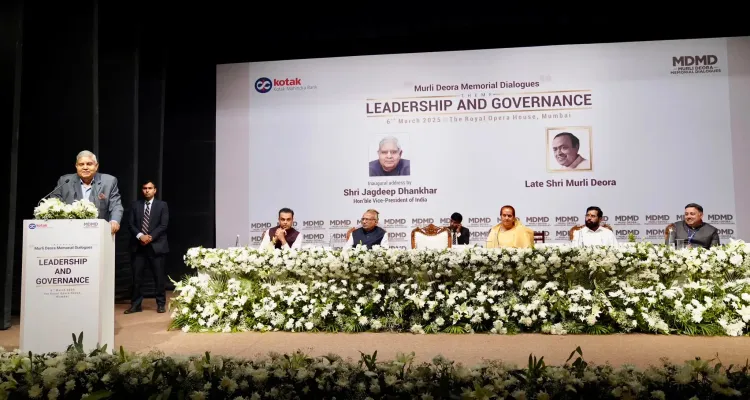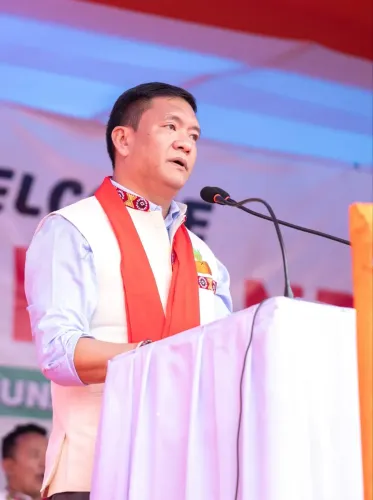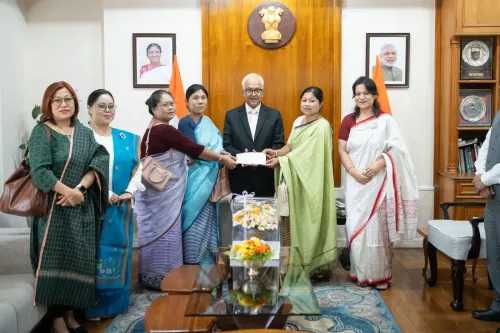VP Dhankhar Advocates for National Dialogue on Transition from Democracy to Emotion-Driven Policies

Synopsis
Key Takeaways
- Vice President Dhankhar stresses the need for a national debate on emotional policies.
- Populism is detrimental to economic health and governance.
- Appeasement politics threatens effective governance.
- Affirmative action for marginalized communities must not be confused with appeasement.
- Demographic challenges posed by illegal migration are significant.
Mumbai, March 6 (NationPress) Vice President Jagdeep Dhankhar on Thursday urged for a national conversation regarding the transition from democracy to ‘emotion-driven policies and emotion-driven debates, which jeopardize effective governance.
“Historically, populism yields poor economic outcomes. Once a leader becomes entwined with populism, it is challenging to escape the ensuing crisis. The primary focus should be the welfare of the populace, ensuring the greatest good for the largest number of people in a sustainable manner. We must empower individuals to take charge of their own futures rather than providing temporary support that undermines their productivity,” he articulated during his keynote address at the inaugural 'Murli Deora Memorial Dialogues' centered on the theme 'Leadership and Governance' in Mumbai.
He voiced significant apprehension regarding the rise of appeasement politics and conciliatory tactics prevalent across the political landscape.
“A new approach is surfacing, characterized by appeasement or a placatory stance. Excessive expenditure on electoral promises diminishes the state's capacity to invest in infrastructure, which adversely affects growth. While elections are crucial in a democracy, they are not the ultimate objective. I urge the leadership of all political parties to unite in the interest of democratic principles and reassess electoral pledges that can only be fulfilled at the expense of the state's capital expenditure. Some governments that have resorted to appeasement and placatory strategies are finding it increasingly difficult to maintain their positions in power,” he stated.
He clarified that affirmative action for marginalized groups is separate from appeasement politics.
He further elaborated: “I should not be misconstrued, ladies and gentlemen, as the Indian Constitution grants us the right to equality, which includes acceptable categories of affirmative governance in Articles 14, 15, and 16—such as reservations for SC, ST, and economically weaker sections. This is legitimized. There are exceptional circumstances for rural communities and farmers that necessitate affirmative measures. However, this is distinctly different from the aspects I previously mentioned. This is not appeasement; it is a justifiable economic strategy. Thus, good leadership involves knowing where to draw fiscal lines in terms of political foresight and backbone.”
Addressing demographic challenges and illegal migration, the Vice President remarked: “The nation is home to millions of illegal migrants, resulting in a demographic upheaval. These migrants place a significant burden on our health and education systems and deprive our citizens of job opportunities. Alarmingly, such groups have gained electoral significance in certain regions, influencing the core of our democracy. The risks posed can be understood through historical precedents where nations lost their ethnic identity due to similar demographic incursions.”









